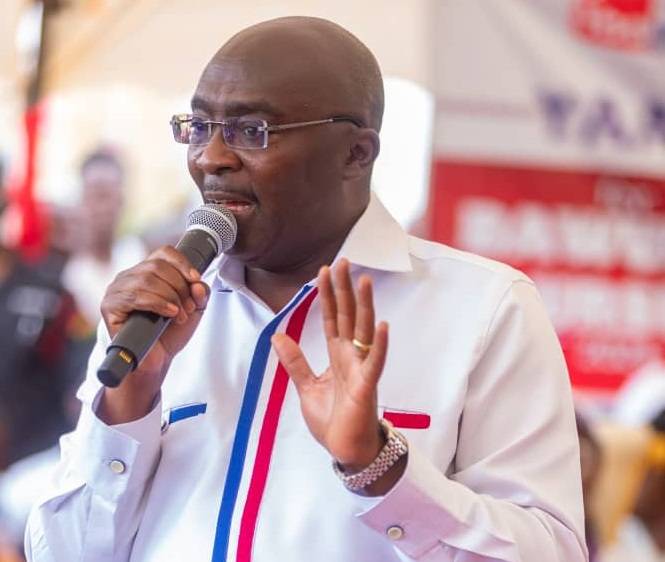Former Vice President Dr. Mahamudu Bawumia has strongly criticised the newly introduced Energy Sector Levy, describing it as “eight times harsher” than the now-scrapped Electronic Transactions Levy (E-Levy).
Addressing supporters at a public forum, Dr. Bawumia accused the National Democratic Congress (NDC) of misleading Ghanaians with promises of tax relief while introducing what he termed a “Dumsor Levy.”
“The NDC told so many lies. Every day they tell lies and yesterday evening you saw — they have introduced Dumsor Levy. Initially, they scrapped the E-Levy we introduced, and today they have introduced Dumsor Levy. It is eight times the E-Levy.” ” he stated
Dr. Bawumia argued that under the E-Levy, a GHS 1,000 transaction would attract a GHS 10 tax, whereas under the new fuel tax, consumers would pay GHS 83 for every GHS 1,000 worth of petrol.
“If you buy a litre of petrol, you will pay one cedi. If you buy GHS 1,000 worth of petrol, you will pay GHS 83 as tax,” he explained.
He further projected that Ghanaians will clamor for the NPP’s return in 2028 because they NDC is yet to release more of the burdensome taxes. He stated that the NDC deceived Ghanaians by telling them lies to find their way into government.
“More are yet to come. By 2028, Ghanaians will realise they told so many lies. I believe they’ll call us to salvage the situation in 2028.”
The debate was triggered by the introduction of the Energy Sector Levies (Amendment Bill), 2025, which proposes a new “one cedi per litre” tax on fuel purchases. The bill, submitted under a certificate of urgency by Finance Minister Dr. Cassiel Ato Forson, aims to raise funds to address Ghana’s growing energy sector debt, currently pegged at US$3.1 billion as of March 2025.
According to the Finance Minister, the additional revenue will be channelled toward clearing payment shortfalls and reducing debt under the Energy Sector Recovery Levy (ESLA). He argued that the recent appreciation of the Ghanaian cedi would help cushion consumers from any significant net impact of the levy.
However, the proposal has sparked controversy in Parliament. During deliberations on Tuesday, June 3, Minority Leader Alexander Afenyo-Markin condemned the move, accusing the government of “double standards.”
“This is just another form of the E-Levy. You remove one tax to gain public favour, only to impose another in disguise.”Afenyo-Markin said
The government insists the levy is essential to stabilising the energy sector, while critics argue it represents a reversal of earlier commitments to ease the tax burden on Ghanaians


